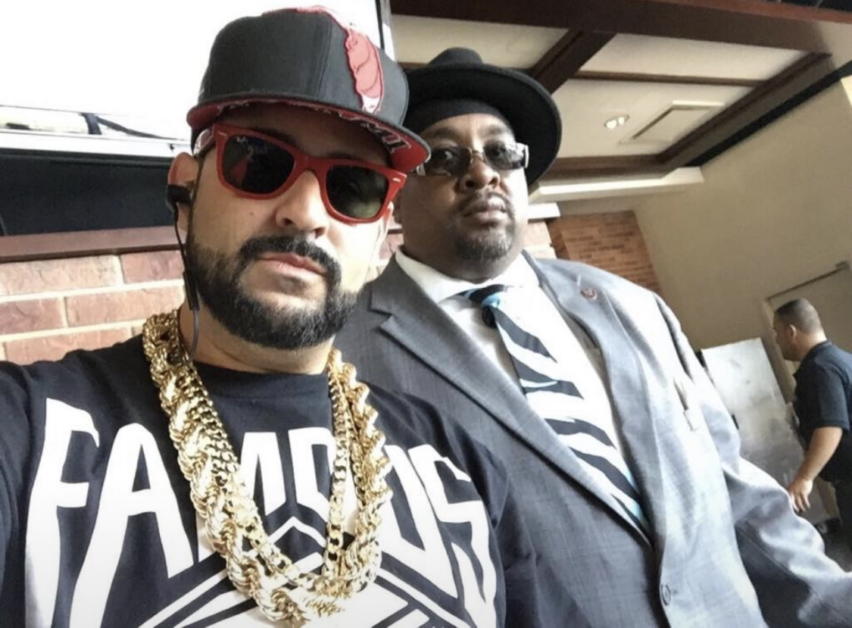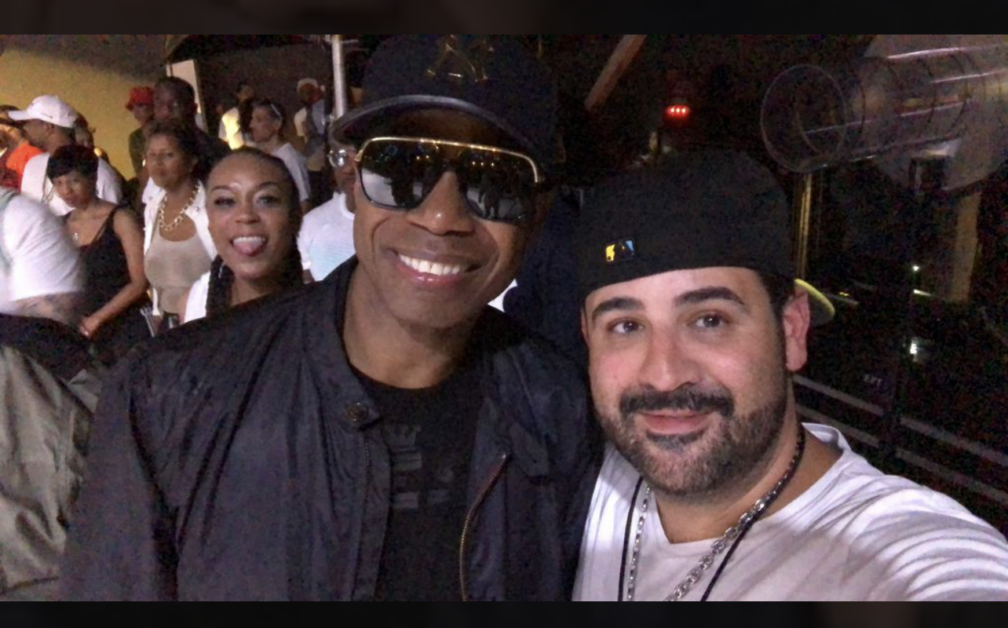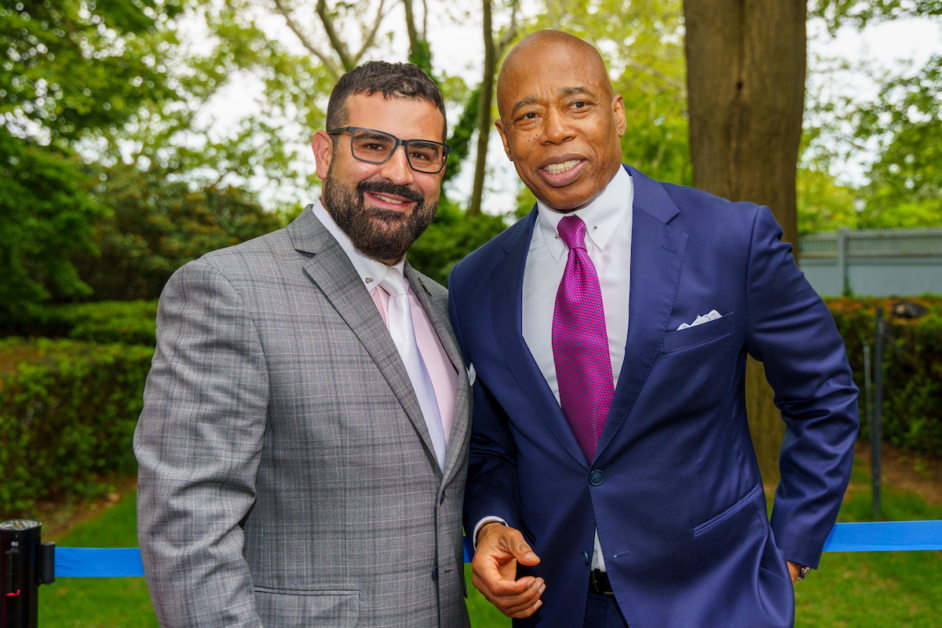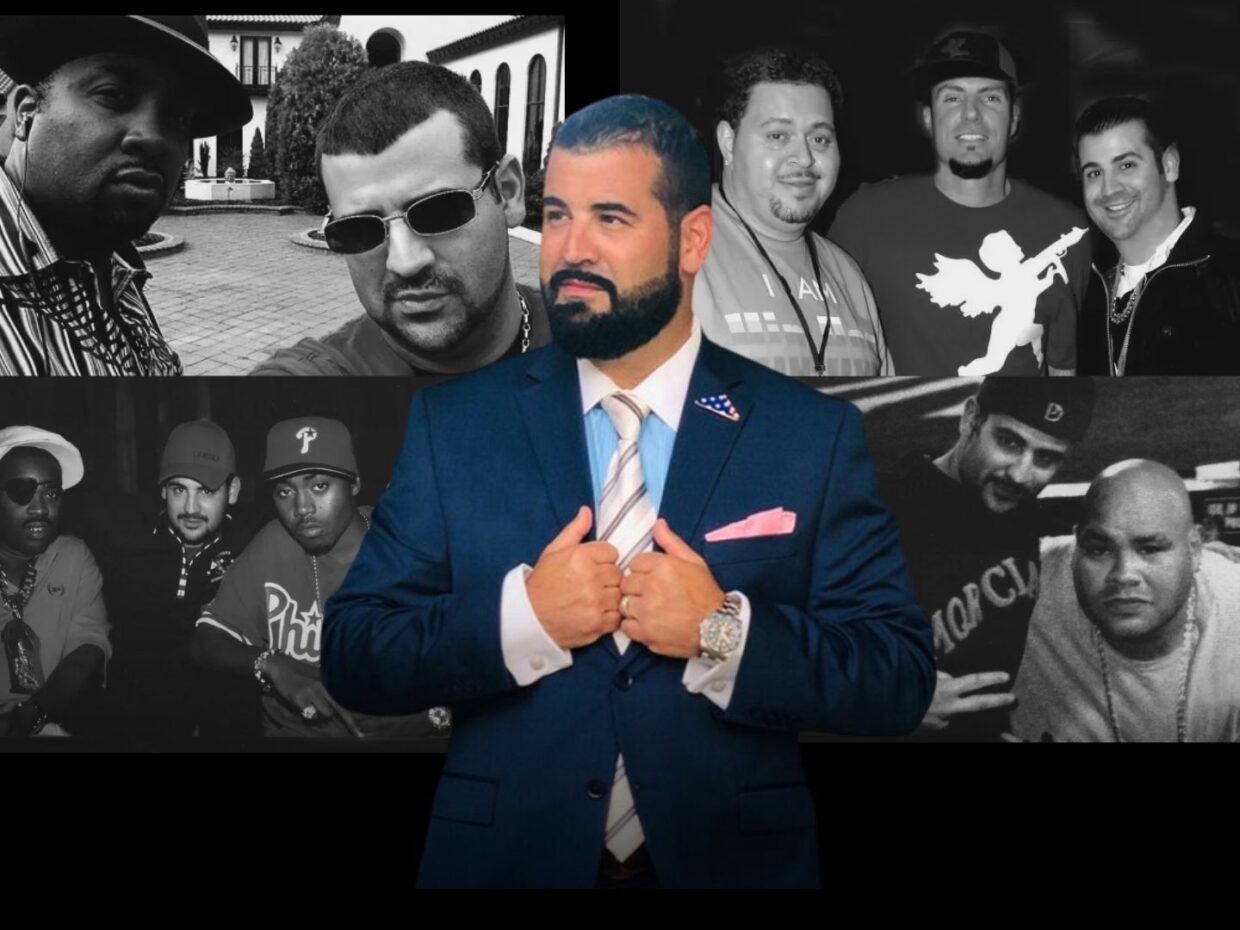Louis “Uncle Louie” Gregory is a unique proposition as it relates to Hip-Hop and he has released a book to chronicle his journey to leadership. “America’s Front Line: From Hip-Hop to Homeland Security” weaves his life stories and insights on leadership, from his formal upbringing to his dynamic career in New York. But, who is he? Gregory has worked in the country’s largest government agency, managed talent in sports, and is affiliated with some of the biggest names in Hip-Hop.
The book includes tales of working with Billy Joel, producing hits with J-Lo, LL Cool J, and Mary J. Blige, and forging bonds with Prince Markie Dee of The Fat Boys and Eric B of Eric B. & Rakim. He navigated the wrestling world with WWE Champion Goldberg, received business advice from mentor Michael Strahan, and appeared on national TV in “The Goldbergs.” He even advised Andrew Yang’s presidential campaigns and enhanced U.S. Customs and Border Protection’s communication strategy.
A former officer and director at the U.S. Department of Homeland Security, Gregory served for 20 years, since the 9/11 attacks. Gregory chased drug smugglers by night and helped produce platinum albums by day. Now, he talks to AllHipHop about his path. Read on.
AllHipHop: How do you reconcile being affiliated with law enforcement and existing within Hip-Hop?
Uncle Louie: Great question. I don’t think the two are necessarily opposing forces. I think first responders are there to keep us safe. I grew up with my dad in jail but that didn’t make me hate law enforcement. For me, individually, I put on a badge and uniform to prevent terrorism. I would hope all good people would be in favor of that. I left hip-hop and put my dreams and aspirations aside after 9/11 to put that mission first. I felt like that sacrifice needed to be made for the better of all, not just me. Sometimes I look back and wonder what I missed; what could I have accomplished if I had focused just on me and my career and not on being in law enforcement. It’s a big what-if.
AllHipHop: What made you write the book in the first place?
Uncle Louie: so much has happened in our world and my life. I really wanted to share my story, encourage others, and also be true about the fact that nobody and no organization is entirely perfect so it’s up to us to work towards fixing things and improving situations whether that be culturally, musically, or even in law enforcement. I was recently inducted into the Suffolk Sports Hall of Fame and as they read my accomplishments, they mentioned my service to the country and in the background, they played Eric B and Rakim. At that moment everything seemed to come circle. Without my book, how could I share such a complex body of work? I am hoping somebody will read this book and want to make a film about my life!

AllHipHop: Tell people about your history with classic acts like The Fat Boys and Eric B & Rakim. How has Hip-Hop shaped who you are?
Uncle Louie: In my book, I share details of my story as a rapper who became a producer who became a federal agent who became a pro sports agent who became a TV actor who became an inventor and an entrepreneur. It’s a story most people wouldn’t and don’t believe at first. I credit a lot of it with early guidance from Prince Markie Dee and continued guidance from mentors like Eric B and Michael Strahan. It took me over 40 years to learn that the key to my success was doing less, not more. By being single-scope focused I was able to create something amazing. A collectibles empire called America’s Front Line. That massive success only came after gaining the confidence to do so. I credit Strahan with instilling that confidence in me. Being awarded an inventor’s patent was a huge accomplishment for me. It felt like a platinum record!
AllHipHop: What about being in Homeland Security? What made you delve into that?
Uncle Louie: At first, it was just another adventure. It was never supposed to be a career, just a fun and exciting experience. The lore of that gold badge and gun. It seemed like the ultimate hustle. One day I was making records with Nas and the next I was in Basic Training to be a Federal Agent. The tragic events of 9/11 made it much more than simply an adventure though and it became a responsibility; something I had to stick with for 2 decades. I was ultimately promoted 9 times and event became Chief and then finally, Director. But in my book, you’ll learn about racism I battled to end within my agency and you’ll learn about prejudices I dealt with. It was by no means a perfect situation.
AllHipHop: Do you think Rap and Law Enforcement are in a better space now?
Uncle Louie: I think some parts of rap are broken and similarly, so are some parts of law enforcement. To fix both, we all have to come together and admit that. We have to innovate, communicate and develop plans to correct the shortcomings. I think that’s certainly possible but to do so, we have to remove the politics. We can’t fix these things by going left or by going right, we must move forward. Civil rights like freedom of speech and the right to expression without censorship are huge to me. I have had to fight for those rights as an artist and as the book explains, it wasn’t always easy.

AllHipHop: J-Lo, LL Cool J, and Mary J. Blige are in your bio. How was it working with those celebrities as a producer?
Uncle Louie: one of my fondest memories was actually of working in the studio with Slick Rick and Nas. It was a time that I often replay in my mind. It’s when I truly learned how music is made. Working with Wyclef was a great experience too, even if it was to help produce a diss record of LL Cool J who was very important to me and to Markie Dee. We would often eat dinner on Francis Lewis Boulevard with L. LL gave Markie a gig on Rock the Bells before Markie’s passing and that was a tremendous gesture. I am very grateful for that and I wish more people would look out for those who built the foundation. I have funny memories of working with J-Lo and of course, Diddy was around during that time speaking of hip-hop and law enforcement. Markie was most proud of the Mary project and What’s the 411 was one of his greatest production accomplishments.

AllHipHop: Talk about your famous mentors.
Uncle Louie: Throughout my career, I have had a very diverse group of mentors. For 30 years Eric B has guided me and been a big brother and a mentor. I discuss this theme quite a bit in my book. As I mentioned earlier, Michael Strahan has given me invaluable guidance as well. I also learned a lot from working with WWE Star Goldberg and when I was President of Legends of Wrestling, I learned when to walk away from something that I felt wasn’t a good fit for me even if it was fun and successful.
I’d also like to mention how much I learned working with Daymond John. He isn’t a mentor in the true sense of the word but having worked on many projects with him and developed products with him and Simone Newbolt for Black Entrepreneur Day events and Shark Group companies taught me a ton about working with a Shark.
AllHipHop: Final words? What do you want people to take away from this book?
Uncle Louie: I want people to gain confidence from this book. As a kid who grew up with his dad behind bars, I dreamed big. My dreams were unrealistic to most but I continue chasing them and I continue doing my best to leave the world a better place than how I found it. Loving rap music ain’t never going to change for me. I’m also going to always love America. There is no reason those things must be mutually exclusive. I loved serving on America’s Front Line and I can’t wait for what’s next! I’m thankful to Chris R. Vaccaro for writing this book with me. This project took more than 3 years to finish. I hope hip-hop fans will love it!
Buy America’s Front Line: From Hip-Hop to Homeland Security
